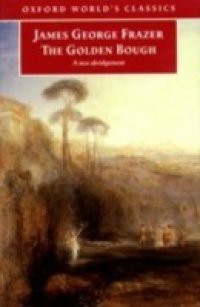A classic study of the beliefs and institutions of mankind, and the progress through magic and religion to scientific thought, The Golden Bough has a unique status in modern anthropology and literature. First published in 1890, The Golden Bough was eventually issued in a twelve-volume edition (1906-15) which was abridged in 1922 by the author and his wife. That abridgement has never been reconsidered for a modern audience. In it some of the more controversial passages were dropped, including Frazer's daring speculations on the Crucifixion of Christ. For the first time this one-volume edition restores Frazer's bolder theories and sets them within the framework of a valuableintroduction and notes. A seminal work of modern anthropology, The Golden Bough also influenced many twentieth-century writers, including D H Lawrence, T S Eliot, and Wyndham Lewis. Its discussion of magical types, the sacrificial killing of kings, the dying god, and the scapegoat is given fresh pertinence in this new edition. - ;A classic study of the beliefs and institutions of mankind, and the progress through magic and religion to scientific thought, The Golden Bough has a unique status in modern anthropology and literature. First published in 1890, The Golden Bough was eventually issued in a twelve-volume edition (1906-15) which was abridged in 1922 by the author and his wife. That abridgement has never been reconsidered for a modern audience. In it some of the more controversial passages were dropped, including Frazer's daring speculations on the Crucifixion of Christ. For the first time this one-volume edition restores Frazer's bolder theories and sets them within the framework of a valuableintroduction and notes. A seminal work of modern anthropolgy, The Golden Bough also influenced many twentieth-century writers, including D H Lawrence, T S Eliot, and Wyndham Lewis. Its discussion of magical types, the sacrificial killing of kings, the dying god, and the scapegoat is given fresh pertinence in this new edition. -

